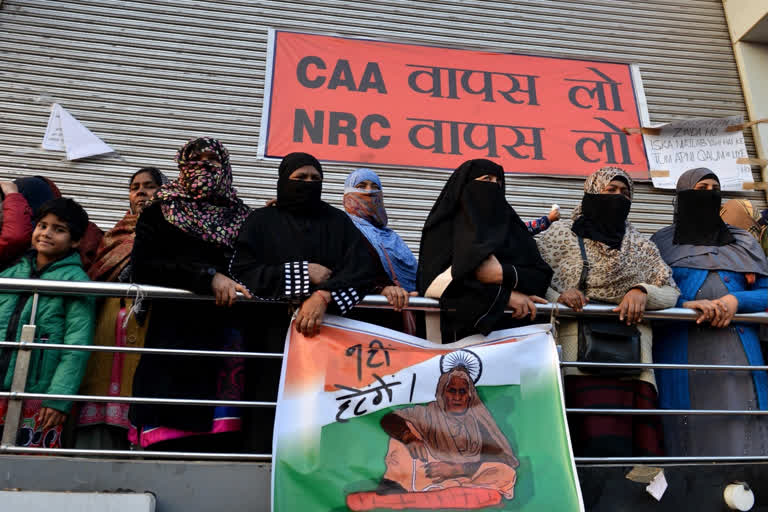Hyderabad:The Citizenship Amendment Act (CAA), passed by the Parliament of India on December 11, 2019, has attracted discontent among some sections of the population. The discontent among the people has led to several protests in the country. The CAA fast tracks the process of granting citizenship to the religious minorities belonging to the Hindus, Sikhs, Buddhists, Jains, Parsis, and Christians of three neighbouring countries of Pakistan, Afghanistan, and Bangladesh migrated to India before December 31, 2014.
While the CAA makes it easier for non-Muslim immigrants from these three countries to acquire citizenship; it has maintained silence on granting citizenship to the Muslim immigrants. As the Muslim immigrants don’t find a place within the CAA, many are protesting the Act questioning the constitutional legitimacy and the intention of the ruling regime in passing the Act. The protests against the Act is mostly based on the fear factor that the CAA along with the National Register of Citizens (NRC) would eventually disenfranchise the Muslim community from their citizenship. The Government’s clarification on the no role of CAA on the Indian citizens has not been able to reduce the tension. For more than one month, since the Act was passed by the Parliament, protests in various forms and intensities have been going on against the Act. While the end objectives of the protests vary from Assam to New Delhi and from students to some social sections, the protest by the women in Delhi’s Shaheen Bagh has caught everyone’s attention.
Termed as a new kind of ‘Satyagraha’ with a fresh grammar of protest, the Shaheen Bagh protest has been going on against the CAA for more than one month now. Mostly participated by the women, the Shaheen Bagh protest has been a reference point of strong opposition to the Act. The popularity of the protest has attracted the Congress Party leaders like Shashi Tharoor, leaders from the Aam Aadmi Party (AAP) and the student communities, a social activist like Medha Patkar among others to address the gatherings.
Reports suggest that the attempts by the Delhi police to pacify the protesters have failed as the women have refused to move from the scene. While the opposition shows its solidarity with the protesters, the ruling BJP terms it like an organised move by the political opponents and alleges the protesters being paid. Claimed as a spontaneous movement by the participants, the incredible coordination among the women to the extent of a more than one-month protracted struggle raises few pertinent questions. These questions range from whether it is spontaneous or organised to the reason for large scale women’s participation in the protest. The answer to the first question lies in reasoning women’s participation against the CAA.
Read: Shashi Tharoor visits Jamia, Shaheen Bagh protest sites
